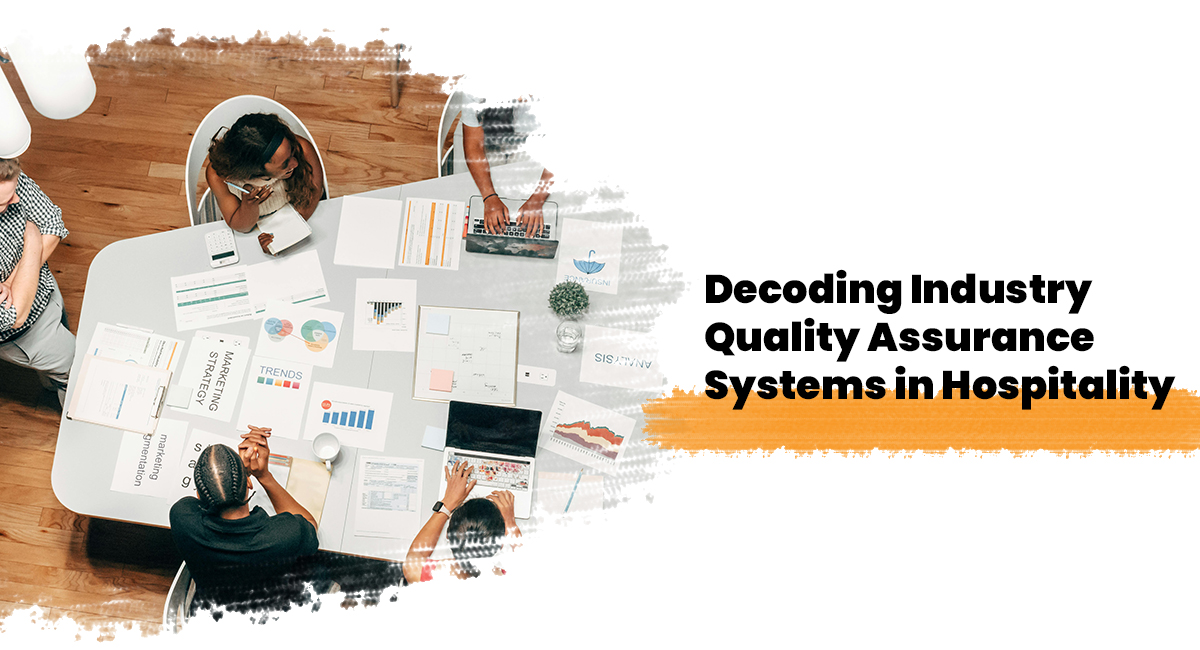
What does a quality management system look like for the hospitality management industry? It is one common question researched online. The hospitality management industry has always been one of fastest growing sectors and worldwide this sector generates billions of dollars. The key to maintaining sustainability in this business is the same as other sectors, and that is maintaining a focus on quality assurance/management. A quality control system plays a crucial role in determining success and longevity of hospitality management companies. Since the industry has become aggressively competitive, companies implement industry quality assurance systems in hospitality to successfully retaining customer loyalty.
A quality assurance system not only determines what quality requirements have been met but also helps with the overall efficiency of business operations. Thus, having this system in place is more than just a necessity. Companies, regardless of their size (employee number) need a stringent management system that will ensure quality is being met along the entire process which encompasses design all the wat through to the delivery phases. A quality assurance system is known for helping with the entire product/service development cycle; therefore, the system offers support towards fundamental sustainable efforts as well.
The following blog will outline some of the key aspects that companies must be aware of. It will list the main responsibilities of the hospitality management sector and then provide a step-by-step process for quality maintenance.
What is hospitality management?
Hospitality management refers to the field of management within the hospitality industry, which encompasses various businesses and services related to lodging, food and beverage, travel, tourism, and entertainment. Hospitality management involves overseeing the operations, administration, and customer service aspects of businesses such as hotels, restaurants, resorts, event venues, cruise ships, theme parks, and catering companies. Some of its main responsibilities include:
• Operational management
• Marketing and sales
• Customer Service
• Management of the financial aspects
• Management of the human resources
• Quality Assurance and regulatory compliance
• Hospitality technology and strategic planning for implementations
As mentioned above, one of most pivotal roles is quality assurance. For that, a company must acknowledge the following process.
How to implement industry specific quality assurance systems in hospitality?
Hospitality Quality Standards – Several organizations and associations develop industry-specific quality standards and guidelines tailored to the hospitality sector. For example, the American Hotel & Lodging Association and the International Association of Hotel Managers provide resources and standards to help hotels and resorts maintain high-quality service and operations.
Understanding ISO 9001 – While the ISO 9001 is a generic quality management standard applicable for various industries, many hospitality organizations seek certification to demonstrate their commitment to quality. This certification focuses on establishing and maintaining a robust quality management system that enhances customer satisfaction.
Customer Feedback and Satisfaction Surveys – Collecting feedback from guests through surveys, comment cards, and online reviews is a crucial aspect of quality assurance in hospitality. Analysing this feedback helps identify areas requiring improvement and allows organizations to address guest concerns promptly.
Mystery Shopping Programs – Hospitality businesses often implement mystery shopping programs where anonymous evaluators/mystery guests assess various aspects of a guest’s experience, such as service quality, cleanliness, and staff interactions. These programs provide valuable insights into the actual guest experience and help identify areas needing improvement.
Training and Development – Investing in comprehensive training programs for hospitality staff is essential for maintaining service quality. Training topics may include customer service, communication skills, conflict resolution, hygiene standards, and product knowledge. Continuous training and development initiatives ensure that staff members are equipped to deliver exceptional service consistently.
Quality Control Checks – Regular inspections and quality control checks need to be conducted to ensure that facilities, amenities, and services meet predefined standards. This may involve routine inspections of guest rooms, public areas, food preparation areas, and equipment to maintain cleanliness, safety, and functionality.
Compliance with Regulatory Requirements – Hospitality businesses must adhere to all regulatory standards and requirements concerning health, safety, hygiene, and accessibility. Compliance to these regulations not only ensures guest safety and satisfaction but also protects the reputation and legal standing of the business.
To locate experience professional support for obtaining this ISO business management system standard for quality and internal audit requirements, you must contact us at Compliancehelp. We are a premier firm when you are looking to achieve any ISO certification in Australia. Our customised solutions for ISO and other global certifications are ready to make this seemingly exhausting accreditation process, comfortable and finish on time. From basic consultation to audit and analysis, we will cover everything. Get help to better understand the requirements and the clauses of any management system standard you require.
Ask certified professionals about the industry quality assurance systems in hospitality benefits and meet compliance without any hassle.

Get connected with us on social networks!